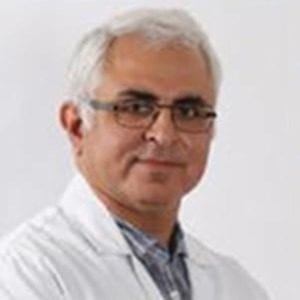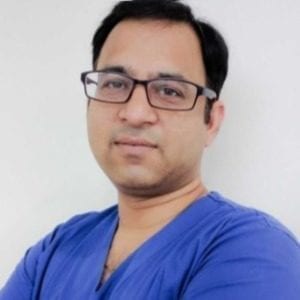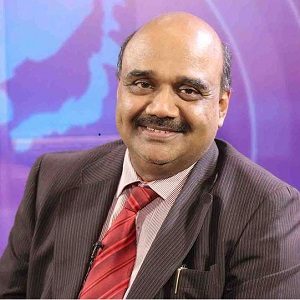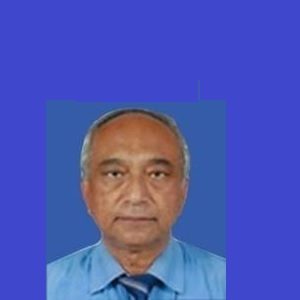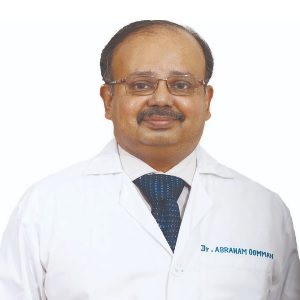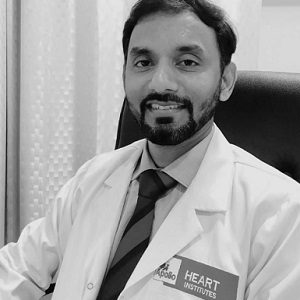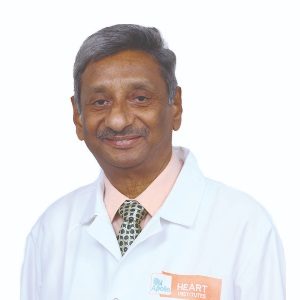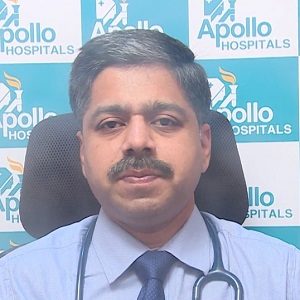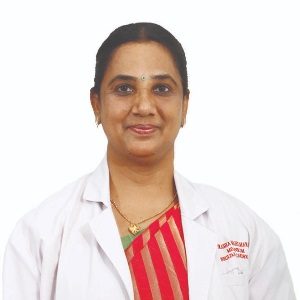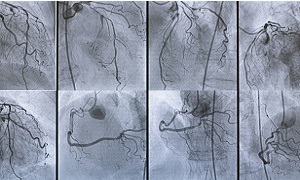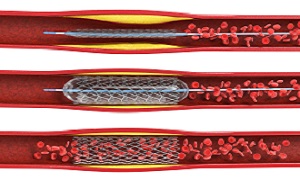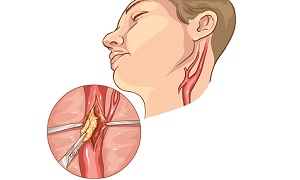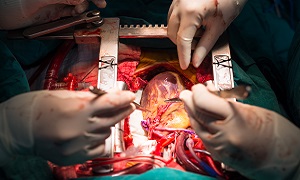Best Doctors in India for Atherosclerosis Treatment
- Cardiologist, Gurugram, India
- Over 20 years’ experience
Profile Highlights:
- Dr. Hemant Madan is an experienced and accomplished cardiologist, with a professional experience of around 20 years.
- His expertise includes all aspects of cardiology, including pediatric cardiology, complex coronary interventions, device implantation, all kinds of rhythm disorders, percutaneous treatment of valve stenosis, and peripheral interventions.
- Dr. Madan pursued his Fellowship at the Royal College of Physicians from Edinburgh in UK.
- Cardiac Surgeon, Gurugram, India
- Over 15 years’ experience
Profile Highlights:
- Dr. Rachit Saxena is an experienced cardiac surgeon, who is known for his extreme dedication to his profession, and for providing absolute patient satisfaction.
- Supported by an efficient cardiac surgical team, Dr. Saxena is known for successfully managing the most complex of cardiac surgical problems.
- Dr. Rachit Saxena is known especially known for the capability to perform cardiac surgery with minimal blood requirement and ensure early mobilization and return to work.
- Cardiothoracic Surgeon, Chennai, India
- Over 25 years’ experience
Profile Highlights:
- Dr. T Sundar is one of the best cardiothoracic surgeons in India.
- He is having extensive exposure to critical heart diseases and he has operated on them successfully.
- Dr. T Sundar is a Senior Consultant at Apollo Hospitals since 2003.
- He has been associated with international standards of surgery and diagnosis since his education period.
- Cardiothoracic and Vascular Surgeon, New Delhi, India
- Over 36 years’ experience
Profile Highlights:
- Dr. N Sastri is a renowned cardiothoracic surgeon in India with extensive experience in critical heart surgeries.
- He has nearly 36 years of experience and is a senior consultant- Cardiothoracic & Vascular Surgery with Indraprastha Apollo Hospitals, New Delhi.
- Dr. Sastri specializes in the diagnosis and treatment of vascular disorders using advanced techniques. He has expertise in Total Anomalous Pulmonary Venous Connection Repair, Arterial and Ventricle Defects Surgery, Cardiac Resynchronization Therapy, Balloon Valvuloplasty, CABG LV restoration, PDA Device Closure, PPI, Valve Replacement, and Atrial Fibrillation Surgery.
- Over the years’ Dr. Sastri had treated patients across various countries. In addition to the adult and neonatal cardiac surgeries, he is involved in research and put out many research papers in different medical journals.
- Interventional Cardiologist, New Delhi, India
- Over 47 years experience
Profile Highlights:
- Dr. Prashanta Kumar Ghosh is a senior cardiologist at Indraprastha Apollo Hospital in New Delhi with experience of nearly 47 years in the field.
- Dr. Ghosh has expertise in testing and monitoring cardiac problems. The procedures mainly include minimally invasive cardiac surgery, implantations, device closure for congenital heart diseases, cardiac catheterization, Carotid Angioplasty, Stenting, etc. Half of his experience came from practicing non-invasive cardiology.
- He has so far performed nearly 3 lakh Echos as well as thousands of Doppler and Trans Esophageal Echos in his professional journey.
- Dr. Ghosh has participated in many studies and published papers in various conferences and journals. He also delivers lectures to the students of many institutions across India and abroad.
- Cardiologist, Chennai, India
- Over 31 years’ experience
Profile Highlights:
- Dr. Abraham Oomman is one of the best Cardiologists in Chennai, having an experience of 31 years in this field.
- Dr. Oomman offers consultation and also performs cardiac procedures. He specializes in Preventive Cardiology, Interventional Cardiology, Rheumatic Heart Disease, and Lipidology.
- Patients also visit him for ASD and VSD Surgery, Dextro-Transposition of the Great Arteries (DTGA), Minimally Invasive Cardiac Surgery, and Vascular Surgery.
- Cardiologist, Chennai, India
- Over 22 years’ experience
Profile Highlights:
- Dr. Refai is a world-renowned cardiologist who practices at Apollo Hospital in Greams Road, Chennai.
- Dr. Refai completed advanced training in the United Kingdom after finishing his medical degrees in India.
- He specializes in Angioplasty (Stent implantation), Implantable Cardioverter-Defibrillators (ICDS), Transradial Rotablation, Chronic Total Occlusion Angiography, Pacemaker, Cardiac Invasive Procedures, Bypass Surgery, and other cardiovascular procedures.
- He was involved in many TAVI-related studies at King’s College Hospital in London, and a heart failure pilot trial at The Essex.
- Interventional Cardiologist, Chennai, India
- Over 38 years’ experience
Profile Highlights:
- Dr. I Sathyamurthy is a veteran Cardiologist and has an experience of more than 38 years in Interventional Cardiology.
- Dr. Immaneni Sathyamurthy is a distinguished personality who bagged Padma Shri, the fourth-highest Indian civilian award. In addition to it, he was conferred many awards for his contribution to the medical sciences.
- He has over 250 publications to his credit, some of these are used as textbooks in medical courses.
- Interventional Cardiologist, Chennai, India
- Over 25 years’ experience
Profile Highlights:
- Dr. Karthigesan A M is a renowned Interventional Cardiologist with more than two decades of experience.
- He completed advanced training in cardiac arrhythmia in the USA to serve his patients in a better way.
- Dr. A M Karthigesan received several awards from prestigious associations for his contribution to the field.
- Dr. Karthigesan authored several research papers and articles in premier periodicals and presented papers at national conferences.
- Interventional Cardiologist, Chennai, India
- Over 32 years’ experience
Profile Highlights:
- Dr. Asha Mahilmaran is a seasoned Interventional Cardiologist in Chennai, with more than three decades of expertise in the sector.
- She excelled in academics and was awarded a gold medal in medicine and cardiology.
- Dr. Mahilmaran offers Ventricular Septal Defect Surgery, Cardioversion, Carotid Artery Disease, Chest Pain Treatment, Cardiac Ablation, and Dextro-Transposition of the Great Arteries (DTGA), etc.
- Over the years, she has performed over 15,000 preventive heart checkups.
Best Hospitals in India for Atherosclerosis Treatment
Lilavati Hospital & Research Centre, Mumbai
- City: Mumbai, India
Hospital Highlights:
- Lilavati Hospital & Research Centre is India’s premier multi-speciality tertiary care hospital and has been recognised as a global medical excellence centre.
- Lilavati Hospital & Research Centre has built an unrivalled level of trust with its patients over the years, thanks to a solid foundation that comprises cutting-edge facilities, the best medical competence, research, education, and charity endeavours.
- The hospital is quite proud of the fact that it now serves patients from all kinds of backgrounds, not just from the United States but from all around the world.
- The hospital has a total of 323 beds, one of the largest Intensive Care Units (ICUs), 12 Operation Theatres with modern amenities, over 300 consultants, and almost 1,800 personnel.
Venkateshwar Hospital, Dwarka, New Delhi
- City: New Delhi, India
Hospital Highlights:
- State-of-the-art technology and devoted healthcare professionals have been brought together under one roof at Venkateshwar Hospital to provide genuine medical care. The hospital’s professionals work together as a team to deliver the best possible treatment to their patients, using the most sophisticated equipment and information technology.
- Venkateshwar Hospital’s mission is to attain global excellence in healthcare by employing evidence-based, ethical clinical practices and cutting-edge technology by a team of highly skilled experts.
Marengo Asia Hospital, Faridabad
- City: Faridabad
Hospital Highlights:
In the sprawling city of Faridabad, where healthcare needs are diverse and ever-evolving, one institution has consistently stood out as a beacon of excellence in the field of medicine—Marengo Asia Hospital. Established with a vision to provide world-class healthcare services to the community it serves, Marengo Asia Hospital has emerged as a trusted name synonymous with quality, compassion, and innovation in healthcare.
MGM Healthcare, Chennai
- City: Chennai, India
Hospital Highlights:
- Located in Chennai, India, MGM Healthcare is a top multispecialty hospital that provides all medical services under one roof.
- Since its founding in 2019, MGM Healthcare has quickly become a leading national referral centre, creating several innovative flagship initiatives.
- MGM Healthcare combines next-generation medical and digital technologies to provide better patient results.
- With 12 centres of excellence, more than 400 inpatient beds, 100 intensive care unit beds, and 24/7 emergency care, MGM Healthcare leaves no chance in redefining the patient experience in Chennai.
- MGM Healthcare boasts 250+ expert doctors across 30+ departments, including Cardiology, Pulmonology, Neurology, Obstetrics & Gynaecology, and more.
- They house 12 specialized Centres of Excellence, including Neurosciences, Orthopaedics, and Multi-Organ Transplantation.
- Their team of doctors, nurses, and paramedics works together to give every patient individualized treatment.
Atherosclerosis
Atherosclerosis is a condition which causes the arteries to narrow and harden. This leads to your arteries getting blocked, putting your blood flow at risk. It is usually caused by the build-up of fats, cholesterol and other such substances in and on your artery walls.
Atherosclerosis is a type of arteriosclerosis, though the terms are used interchangeably sometimes. The plaque can burst, which can trigger a blood clot. Atherosclerosis is often considered a heart problem, but it might affect any part of your body. This condition is preventable as well as treatable.
Causes
Plaque buildup as well as subsequent hardening of the arteries leads to the blood flow in the arteries being restricted, which prevents your organs and tissues from getting the required oxygenated blood. Some common causes of this condition include:
- High Cholesterol- Cholesterol is a waxy, yellow substance that is found naturally in the body as well as in some foods you consume. When the cholesterol level in your blood is too high, it can lead to the clogging of your arteries. It becomes a hard plaque that restricts or blocks blood circulation to your heart as well as other organs.
- Diet- It is also quite important to eat a healthy diet. An overall healthy diet should include a wide range of fruits and vegetables, whole grains, dairy products with low fat, nuts and legumes, etc.
- Aging- As one ages, their heart and blood vessels work harder to pump as well as receive blood. Your arteries may weaken and become less elastic, which makes them more susceptible to plaque buildup.
Symptoms
Mild atherosclerosis doesn’t usually have any symptoms. Usually, symptoms occur only after an artery is so narrowed or clogged that it is unable to supply adequate blood to the organs and tissues. Sometimes a blood clot can completely block blood flow or it might even break apart and can trigger a heart attack or stroke. Symptoms depend on which part of your body is affected.
- If you have atherosclerosis in your heart arteries, you might show symptoms such as chest pain or pressure.
- If you have atherosclerosis in the arteries which lead to your brain, you might have signs and symptoms such as sudden numbness or weakness in your arms and legs, difficulty in speaking, temporary loss of vision in an eye or your face muscles drooping. These signal a transient ischemic attack and if it is left untreated, it might lead to a stroke.
- If you are having atherosclerosis in the arteries in your arms and legs, you might show symptoms of peripheral artery disease, like leg pain when walking.
- If you have atherosclerosis in the arteries which lead to your kidney, you can develop high blood pressure or maybe even kidney failure.
Diagnosis
Your doctor first performs a physical exam to check for signs of atherosclerosis. They will check if your pulse is weakened or if there are any signs of an aneurysm, which is an abnormal or widening of an artery due to weakness of the arterial wall, slow wound healing, which can indicate a restricted blood flow.
A cardiologist might listen to your heart to check if there are any abnormal sounds. They will be listening for a whooshing noise, which can indicate that an artery is blocked. Your doctor will be ordering more tests if they feel you might have atherosclerosis.
These tests can include:
Blood test
Doppler ultrasound
Ankle-brachial index
Angiogram
Stress test
MRA
Electrocardiogram
Treatment
Medications
There are various drugs that can slow or reverse the effects of atherosclerosis. Some common choices are:
- Cholesterol medications- These kinds of medications are used to lower the low-density lipoprotein cholesterol aggressively, as this may stop or even reverse the buildup of fatty deposits in your arteries. Boosting your high-density lipoprotein cholesterol can however help. Your doctor will guide you in choosing from a range of cholesterol medications.
- Beta-blocker medications- These kinds of medications are commonly used for coronary artery disease. They help in lowering your heart rate as well as your blood pressure and reduces the demand on your heart as well as relieving symptoms of chest pain. They can also reduce your risk of having a heart attack or heart rhythm problems.
- Anti-platelet medications- Your doctor might prescribe you anti-platelet medications like aspirin, to help reduce the likelihood that platelets will clump in narrowed arteries and form a blood clot which will even lead to further blockage.
- Angiotensin-converting enzyme (ACE) inhibitors- These medications might help to slow the progression of atherosclerosis by lowering your blood pressure and they also produce other beneficial effects on your heart arteries. ACE inhibitors can help in reducing the risk of recurrent heart attack as well.
- Calcium channel blockers- These medications can lower blood pressure can also be used for treating angina.
- Water pills (diuretics)- Diuretics can help in lowering blood pressure, as high blood pressure increases the risk of having atherosclerosis.
- Other medications- Your doctor might be suggesting some other medications to control specific risk factors for atherosclerosis, like diabetes.
Surgical procedures
Aggressive treatment can be needed sometimes to treat atherosclerosis. If you are having severe symptoms or a blockage that threatens muscle or skin tissue survival, you might be a candidate for a surgical procedure such as:
Angioplasty and stent placement
During angioplasty and stent placement, your doctor inserts a long and thin tube called a catheter into your blocked or narrowed part of the artery. A second catheter with a deflated balloon on its tip is next passed through the catheter to the narrowed area. Next, the balloon is inflated, compressing the deposits against the artery walls. To help in keeping the artery open, a mesh tube is usually left in the artery.
Endarterectomy
Fibrinolytic therapy
If you have an artery that is blocked by a blood clot, your doctor might use a clot-dissolving drug in order to break it apart.
Bypass surgery
Risk factors
Hardening of the arteries can occur over time. There are quite a few factors which can increase the risk of developing atherosclerosis, which includes:
- High blood pressure
- High cholesterol
- Obesity
- Diabetes
- Smoking and using any such tobacco
- Having a family history with heart disease
- An unhealthy diet
- Lack of regular exercise
Complications
Depending on which arteries are blocked, atherosclerosis can lead to several complications, which can include:
- Coronary artery disease- When atherosclerosis narrows the arteries which are close to your heart, it can lead you to coronary artery disease. This can cause chest pain or a heart attack or even heart failure.
- Carotid artery disease- When atherosclerosis narrows your arteries close to your brain, this might lead you to develop carotid artery disease, which can lead to a transient ischemic attack or even a stroke.
- Peripheral artery disease- When atherosclerosis narrows down your arteries in the arms or legs, this can lead you to develop certain problems which are termed as peripheral artery disease. This can make you less sensitive to heat and cold and can increase your chances of burns or frostbites. Although it is rare, in some cases, poor circulation in your arms and legs can also cause tissue death.
- Chronic kidney disease– Atherosclerosis can also cause the arteries which lead to your kidneys to narrow, which will prevent oxygenated blood from reaching them. This can affect your kidney function over time keeping waste from exiting your system.
- Aneurysms- Atherosclerosis can also lead to aneurysms, which is a serious complication that can occur anywhere in the body. An aneurysm is basically a bulge in the wall of the artery. Many people with aneurysms usually show no symptoms. If pain and throbbing in the area of aneurysm occur, it is declared as a medical emergency. If an aneurysm bursts, it can cause life-threatening internal bleeding.
Prevention
Preventive measures can also help one against atherosclerosis. Quitting smoking, regular exercise and maintaining a healthy weight, eating healthy food can help a great deal

